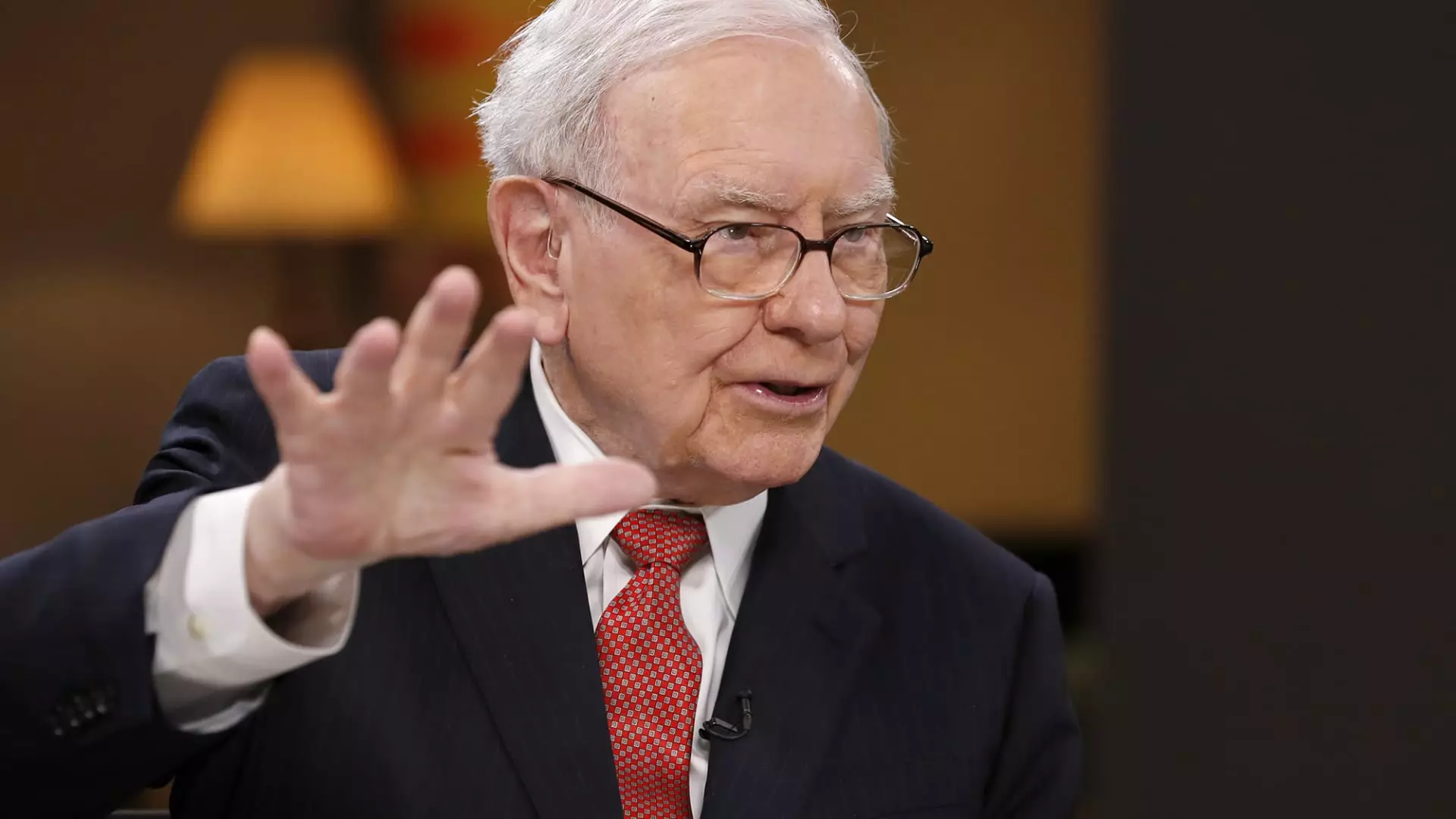When discussing the realm of wealth management and inheritance, few figures are as influential or respected as Warren Buffett. Known as the “Oracle of Omaha,” Buffett has not only navigated the tumultuous waters of investment since the 1960s but has also become an emblem of responsible wealth redistribution. With a personal fortune estimated at a staggering $150 billion, Buffett has taken a bold stance against the notion of dynastic wealth, advocating instead for a model steeped in philanthropy and accountability.
Buffett’s approach to wealth inheritance is remarkable for its rejection of traditional expectations. Rather than funneling his vast resources into his descendants’ pockets, he has chosen to channel a staggering 99% of his wealth into philanthropic ventures. In a recent disclosure, Buffett appointed three trustees to oversee his charitable endeavors, a decision that underscores his commitment to ensuring that his legacy is not one of financial entitlement for his children, but rather one of impactful giving.
At 94, Buffett understands the psychological and societal implications of immense wealth. He argues that heirs of vast fortunes may become complacent, leading to a potential erosion of personal growth and a dilution of familial relationships. Buffett’s assertion is not merely a sentimental reflection; it carries deep ethical implications about the responsibilities that come with wealth. The founder of Berkshire Hathaway acknowledges, “I’ve never wished to create a dynasty or pursue any plan that extended beyond the children.” This statement encapsulates his desire for his wealth to benefit society at large rather than simply accumulating within family bounds.
Buffett’s perspective on wealth management emphasizes the unpredictable dynamics of future generations. The challenge lies not just in distributing wealth but in ensuring it is managed wisely. “Who can foresee the priorities, intelligence, and fidelity of successive generations?” he mused, reflecting on the difficulty of predicting how wealth will be utilized long after one’s passing. The uncertainty compels a cautious approach—one that prioritizes competent stewardship over mere inheritance.
In his latest actions, Buffett reaffirmed his trust in his children’s abilities while making provisions for their potential successors. By selecting three trustees—individuals not revealed publicly but recognized as trustworthy—Buffett is building a structured framework for his philanthropic aspirations. He hopes his children will be able to engage directly in the distribution of his wealth, but in the event they cannot, these designated individuals, who are reportedly younger, will step in. This balance illustrates a meticulous strategy that intertwines family values with operational efficacy.
Buffett’s faith in his children’s philanthropic potential is built upon years of observation. He notes the significant evolution his children have undergone in understanding large-scale charitable endeavors, showcasing their capacity to make impactful decisions. “They enjoy being comfortable financially, but they are not preoccupied with wealth,” he remarked, emphasizing the values instilled in them by their late mother. His reflections serve not just as a parental endorsement but also as a commentary on how values play a critical role in shaping responsible heirs.
This ethos resonates deeply within Buffett’s overall philosophy regarding wealth. Instead of hoarding assets for generational opulence, he encourages a culture of giving and social responsibility. The annual contributions he has made to various family foundations since 2006 illustrate a proactive stance on ensuring his wealth is distributed effectively while nurturing the skills and values of his children.
In a broader sense, Buffett’s approach offers vital lessons for the affluent. His philosophy challenges the status quo of wealth preservation that dominates discussions among the wealthy elite. Instead of allowing fortunes to become stagnant, he advocates for a dynamic model centered on social good—one that encourages engagement, accountability, and foresight in wealth utilization.
As Buffett’s Berkshire Hathaway continues to thrive, achieving a market cap of $1 trillion, his legacy seems more critical than ever. His vision—one that calls for philanthropy over mere inheritance—challenges others in the financial realm to reconsider their strategies. The emphasis on responsible wealth management that prioritizes the greater good over individual luxury may inspire a new generation of investors and philanthropists who are equally dedicated to crafting meaningful legacies.

